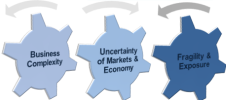Thursday, 17 January, 2013 Leave a comment
‘Systems Thinking’ isn’t about change for change’s sake and if/WHEN someone tells you that it is I would encourage you to question their motivation and knowledge!
John Wenger explains WHY in this, typically well-crafted and informative article…
 A poll in October of 2011 put the approval rating of the US Congress at just 9%. When Rasmussen pollsters asked Americans if they approved of the US going communist, a full 11% said they were OK with that; two points ahead of Congress. To put that into context, during Watergate Richard Nixon’s approval rating was 24%. BP, during the Gulf oil spill, hit 16 %.
A poll in October of 2011 put the approval rating of the US Congress at just 9%. When Rasmussen pollsters asked Americans if they approved of the US going communist, a full 11% said they were OK with that; two points ahead of Congress. To put that into context, during Watergate Richard Nixon’s approval rating was 24%. BP, during the Gulf oil spill, hit 16 %.
To me, these figures illustrate the erosion of trust in those who set out to lead us and, I suspect, an erosion of faith in the systems that puts those leaders there. It’s not just a crisis of democracy, it’s a much wider crisis of leadership: in government, in business, in churches. The expenses scandal in the UK. Widespread sexual abuse perpetrated by Catholic priests and covered up by bishops. Credit ratings agencies giving the thumbs up to banking systems at the heart…
View original post 1,509 more words













